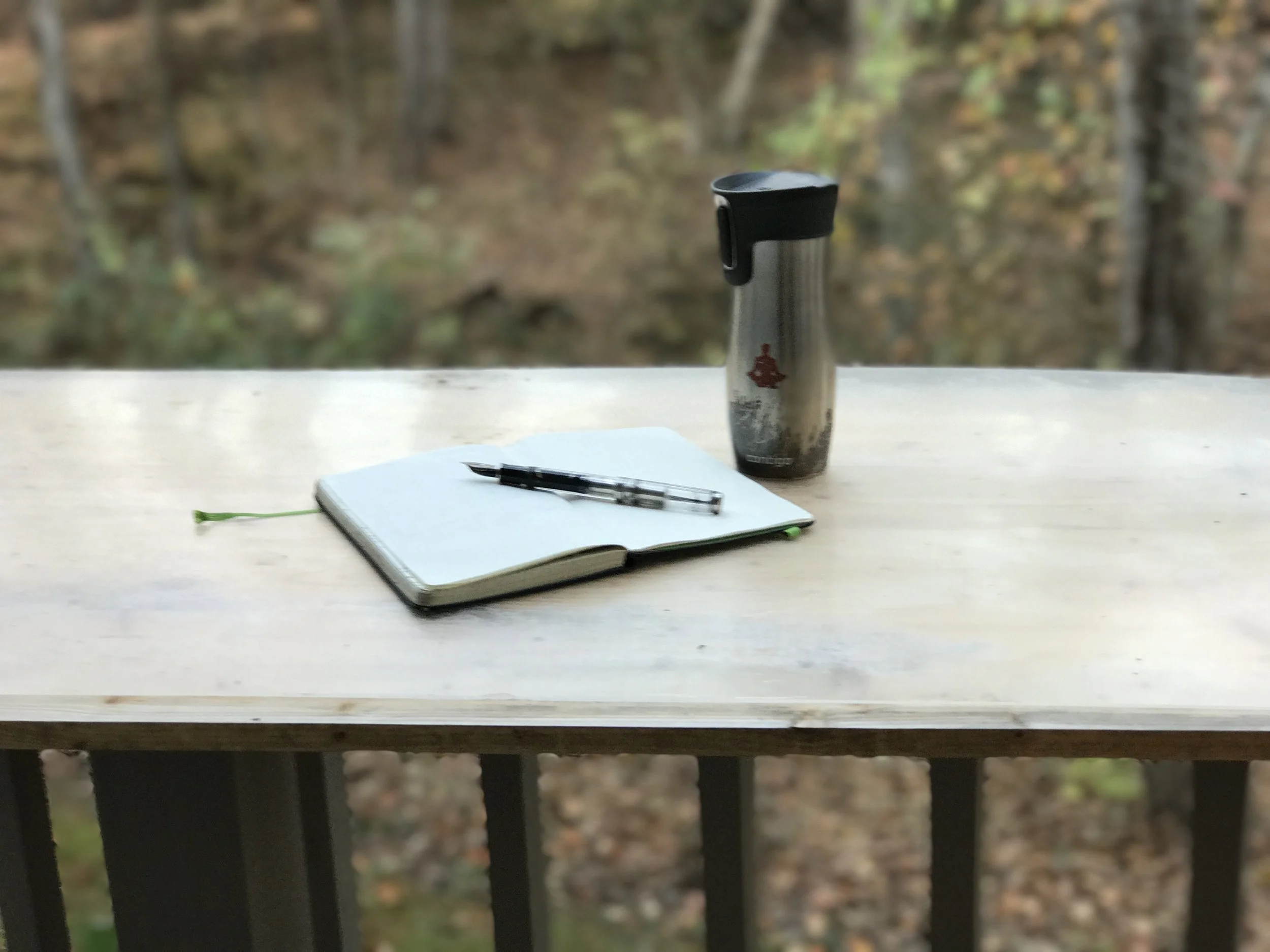Think!
"No Problem Can Withstand The Assault of Sustained Thinking"
- Voltaire
I cannot recall the first time I discovered this gem accredited to the French enlightenment polymath Voltaire (I have searched for but could not find the original source for this quote), but since that time it has been quite the motivator for me indeed. While certainly the natural laws of physics provide an upper ceiling for the problems Voltaire describes, for all else, the power of the human mind and deep, focused thought can provide an answer. The act of thinking is the single greatest freedom that mankind has ever known. Nearly all other rights and freedoms can be taken away by those motivated to do so, but the power and freedom to think will always remain. It is unfortunate then, that a great many of us abstain from vigorously and deliberately exercising this right, and I pen this article today in hopes of motivating you to think more often, think at a deeper level, and think with more focused energy from this point forth.
In a previous article on the concept of Creation vs. Consumption, I wrote at length about my desire to see us create more and consume less, and to consume higher quality content when we do consume. As the first step in creation is the act of thinking, today I will focus solely on the thinking aspect of creation and life in general. With regards to Voltaire and the original quote, perhaps a better thought from the philosopher would have substituted the word challenge for problem, and henceforth I will refer to all problems as challenges for the sake of this article. A problem elicits a negative emotional response in the brain, while a challenge is something we instinctively strive to overcome.
How much time then, do we spend in periods of deep, focused thought? When faced with challenges in our personal and professional lives, do we respond by pausing, thinking deeply, and working through said challenges, or do we react emotionally and let the stress of the situation consume us? When tasked with a project at work or a paper for school, how much time do we spend thinking and planning before starting the project? A quote accredited to Abraham Lincoln (which did not appear in any of his many works) talks of spending 3 hours sharpening his ax if given 6 hours to chop down a tree. While Lincoln may not have penned this now infamous quote, the general principle is one we can all adopt. As we have heard it said, prior proper planning and preparation prevents poor performance. Thinking, and thinking with deep, laser focused energy, is at the heart of planning and preparation, and I do believe this strategy is the best way to solve the many challenges in our lives and the best way to foster high quality content creation.
Regarding the aforementioned challenges, imagine if we spent more time engaged in deep, active thought! The average American watches 35 hours of television per week, and I cannot imagine said American is engaged in much deep thought while doing so. Perhaps a few...or the majority of the sociopolitical and socioeconomic challenges we face in this country could be solved by "We The People" and policy makers alike if we all spent more time in periods of deep thought? While the point of this article is not to delve into politics, I point to our social and economic woes as an example of what can occur in the void left by Americans disengaged from deep, focused thinking.
Below I list two steps we can immediately take to increase the quality of our thinking. These are certainly not the only steps we can take to think at a higher level, but I do believe they are the most important -
1. Practice active thinking, and schedule periods of deep, active thought.
There are some that might confuse deep thinking with inactivity, but I believe that we should learn to see what I call "active thinking" as a form of action and schedule periods of deep, active thinking as we would any other to-do list, action oriented task. I often block out 30-45 minute increments in my daily to-do list specifically for thinking, and some of my best ideas come from those brainstorming sessions. As for active thinking, I define it simply as adding action to the thinking process. Active thinking for me takes on several forms, which include, but are not limited to -
- Brisk walking. As walking is nearly involuntary for most and uses few brain resources, we are free to think while walking. The light aerobic workout brings oxygen rich blood to the brain, and creativity and brain function is enhanced. Standing and treadmill desks have been quite the rage lately, and for good reason as we tend to think better while engaged in low to moderate exercise.
- Pen to paper...dry-erase marker to whiteboard...voice to microphone and so forth. You may have heard the term thinking on paper, and certainly everyone has heard the term thinking out loud. I believe these two forms are the best way to engage in active thinking, and fountain pen to paper is my preferred method. I have filled several Moleskine journals with thoughts and ideas over the years, and it is rare to see me without a pen and journal in hand. My preferred method of writing a swimming practice is pacing in front of a whiteboard, and I use Evernote to capture voice notes while driving or if I am away from my pen and journal.
While I prefer to engage in active thinking and have found this is the best way for me to produce great content and ideas, there are times when I do practice passive thinking, albeit rare. Passive thinking for me might be a 10 minute vision session while sitting or used as a "primer" for a session of active thinking with pen on paper.
2. Optimize life for elite brain health and in turn elite thinking.
The brain is everything when it comes to thinking, and thus anyone who is interested in taking their thoughts to a higher level should elevate their brain to pedestal status. The simple yet hard-hitting truth that so many Americans loathe to hear, yet we cannot escape, is that nearly every lifestyle decision we make in turn affects the health of our brain, and the eventual quality of our thinking. If we are serious about wanting to think better, make better decisions, learn more in terms of quality and quantity, and create at a higher level, we must begin to value the health of the brain more than we do in our current state of affairs. We cannot out think a poor diet, poor sleeping habits, or a lack of exercise. We cannot out think the buildup of toxins in the brain, and we cannot out think prolonged, elevated stress levels.
I have gone through a bit of a transformation in regards to what motivates me to eat a strict, healthy diet, exercise, manage stress accordingly, and limit the amount of toxins I consume. In my younger days as an athlete in high school I wanted to excel on the football/baseball fields and in the pool, and the aforementioned protocol of elite health certainly aided my athletic goals. In my college years my motivation included the athletic goals and also leaned toward the aesthetic. I dabbled in bodybuilding and as with many college males, desired to be one of the biggest guys in the gym. Now that my playing days and serious weight training days are over, my motivation for elite health rests squarely with the performance of my brain, and nearly every decision I make in regards to diet, exercise, lifestyle, etc., is run through one simple filter -
Is this good for my brain or not?
Yes, that is to say, everything I eat or drink for example is filtered through this one simple question. If the food/drink choice at hand is unhealthy for my brain I will politely decline, and if it is healthy I will consume. What time I go to bed, whether I eat organic or not, how I choose to exercise...all are dependent upon whether it is good for my brain or not. This will seem overboard to some...but consider the following -
- In my professional life as a swimming coach, my success or failure is determined by one thing and one thing only...the performance of my brain. Whether it be recruiting, writing workouts, season planning, interpersonal coaching skills, decision making, etc...Everything in coaching that affects my success or failure is entirely brain dependent.
- In my personal life, my success or failure as a husband and father is again, entirely brain dependent. Empathy, decision making skills, energy, how I treat my wife and son...all rely solely on how well my brain is performing at the time.
If I am serious about wanting to be a high-performance husband, father, and swimming coach...I simply MUST strive to develop an elite level brain. The same can be said for all professions not in the manual labor sector, and even then the brain is certainly important for success in the skilled trades! Back to coaching specifically...tell me of the swimming coach who wants to write more creative workouts, yet still chooses to eat processed foods loaded with added sugar? What of the swimming coach who wants to recruit at a higher level, but is constantly sleep deprived and "low energy" during phone calls and on-campus recruiting visits? The list goes on and on...
Some have accused me of being obsessive about diet and so forth...to that I am guilty as charged. But is it not noble that my motivation lies in a burning desire to be a better husband, father, and swimming coach? To be as high-performance as possible in all areas of life? At 32 years young I have left the athletic and aesthetic motivations for elite health behind. If I am serious about wanting to think at a higher level and have a healthier brain, eating a high sugar diet simply will not help me. A challenge for readers today -
If you are in a white collar profession, a knowledge profession, or you are a student, your brain will determine your success or failure in said field. How you eat, and specifically how much sugar you eat, will affect the health of your brain. You simply cannot have a brain functioning at its highest level and consume a high sugar diet. You must choose between high level brain performance or the taste of sugar. The same can be said for sleep and exercise as well.
In closing, think, and think deeply! We should schedule time in the day where we remove distractions, turn the phone and computer off, put pen to paper, and think! When making decisions about what to eat, drink, and how often to sleep, perhaps we shift our motivation from aesthetics and taste to the health of our brains? If late night consumption in the digital realm keeps us from sleeping, perhaps we make small steps to limit said consumption in favor of more sleep? Our brains will thank us, and in turn our ability to think great thoughts and produce high quality content will increase. We have everything to gain and nothing to lose from adopting these simple lifestyle changes, and I hope I have provided a spark of motivation for you to make said changes today.
My 5 Axioms for Elite Thinking
- You cannot out think a poor diet, poor sleeping habits, a lack of exercise, and chronic, elevated stress levels.
- Creativity can be learned.
- Active thinking is superior to all other forms.
- To create more and create higher quality content, schedule regular time for deep, focused thinking.
- Deep thought should not be confused with inaction. See active thinking, as action!


